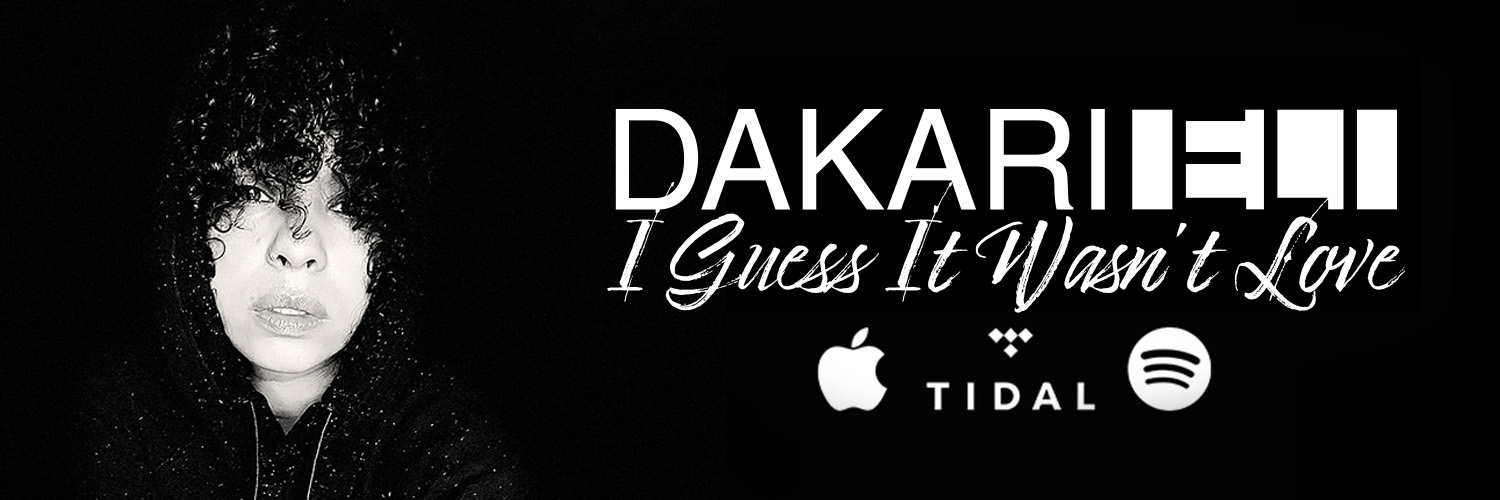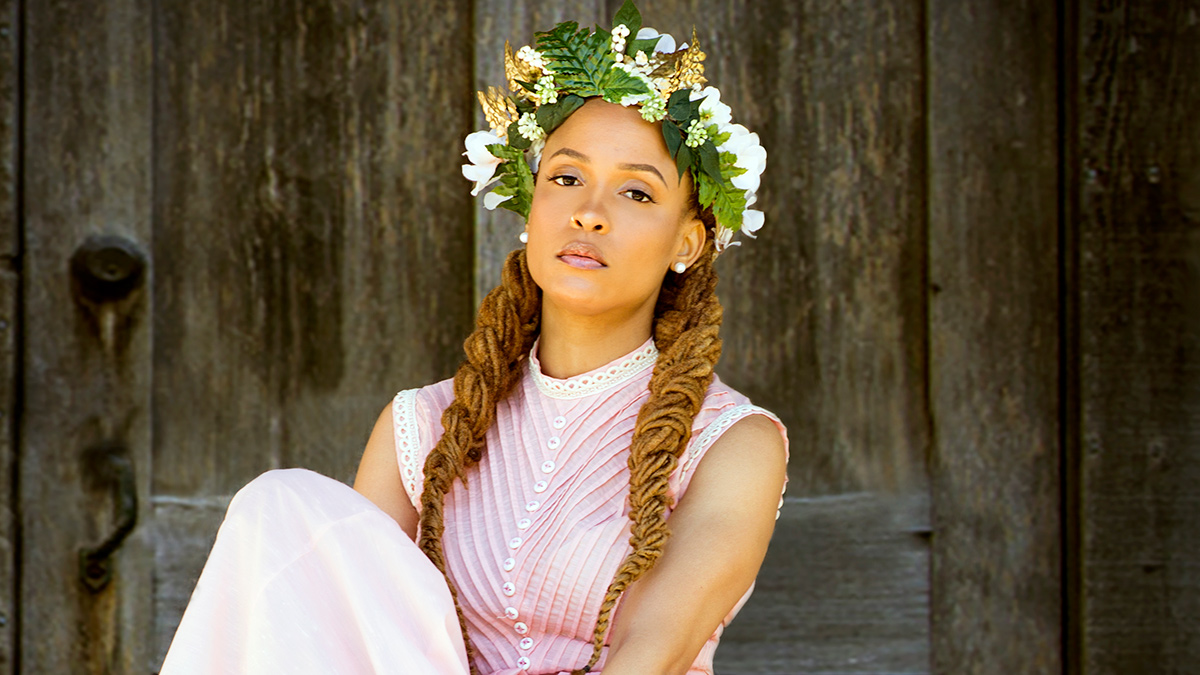Goddess. Queen. Royalty. Black Excellence. Lyricist. These are the words that come to the mind of someone who has witnessed Sa-Roc’s exalted talents on the mic. Her ability to attach words with thoughts and ideas in intricate creative rhyme-schemes places her in a class of very few. Bar-for-Bar, she can hold her own against the greatest emcees. As brilliant as she is beautiful, she is #BlackGirlMagic personified.
You have a new project coming soon, The Sharecropper’s Daughter. Tell us about the title.
The title essentially speaks to my father’s upbringing as a child, first on a Virginia tobacco farm sharecropping with his family, and later in Maryland. It basically speaks to ties that we have through so incredibly different upbringings. It really highlights these two familiar Black experiences in this country. It is that communication, that transfer of history and stories, that has made me who I am. The album itself just really explores a look at who I am as a person outside of my artistry, who I am as an artist, and how all of those genetically transferrable histories of pain, trauma, tragedy, resilience and beauty have culminated to make me who I am.
This is your long-awaited debut album on the Rhymesayer’s imprint. You have been in the game for quite some time, what inspired you to release a full-length project now?
It’s been in the works for a minute, but I think the timing couldn’t be better, especially with the conversation we are having nationally in this country about the presence of Black people and the experience and history we’ve endured. It is important for our experiences to a part of the national conversation. I think in the past and present, we have been told to get over it and that our hardships and tragedies happened three to four-hundred years ago when in fact, that isn’t the case.
We are fully aware and have relationships with people who lived through the Jim Crow era, who like my father were sharecroppers and experienced some of the most brutal aspects of segregation in the south and all parts of the United States. We are starting to see that the things that are happening now are just typical in that they were happening in the 1940’s, 50’s and 60’s. It really calls attention to fact that nothing has changed and that what we call a broken justice system is really working just as intended — to oppress anyone who isn’t in the dominant class.
It is important for us to highlight these stories, highlight the voices of those who haven’t had the opportunity to be heard, and highlight the voices of those who like myself whose very shaping is informed by all these things they tell us to forget. It is a large part of who I am and my upbringing and I’m a young woman so it’s something that we have to address.
Your single “Deliverance” is a powerful example of your exceptional wordplay. Describe the experience of making the track with your labelmate, Evidence.
It was dope because it is really different from what I normally do. The vibe is very laid-back. I consider Evidence’s production a California-styled approach. It’s not really heavy on drums. It’s gritty. I’m used to that boom-bap production with a lot of heavy melodic sampling and things like that, but I’m always willing to switch it up. I think it was refreshing to be able to work and also do the video with him… It was a really cool departure from what I normally do. I usually do lots of colors and a lot of embellishments. It is always good to play around with your toolkit and see what you can do. When you experiment with different sounds, different beats, and producers as well, it allows you to expand and grow as an artist in ways that you may not have thought were previously possible.
I think it’s dope because Evidence is the opposite of me. He’s a dope emcee and he’s very laid back like I said, California style. I am very fiery and my delivery is very passionate. I’m very aggressive on the mic. With this song, I transitioned into a laid-back kind of flow, but the cadence was sharp. I still maintained that element of who I am and what I do as an emcee, but I chilled it out just a little bit.
Towards the end of the video, there’s a quick glimpse of my friend, Rapsody.
We actually shot the video while we were in Los Angeles. We had just finished the L.A. stop of the Rapsody tour. We were shooting the video the next day, so we captured some footage after the show. We actually had Rapsody and two other dope emcees, Dynasty and Lyric Jones.
How has COVID-19 affected your creative process?
It has affected me in so many ways and I know that I’m not alone. It totally halted my touring schedule for spring and summer. Just that alone, when you’re thinking about something that is threatening your streams of income, you have to mentally pivot and all of the sudden come up with new ways to be creative in addition to all of the other things you have to do. You have to create music and create content on social media. And, amidst of all that, there is this fear of this virus and the world being shaped into something unrecognizable.
It was challenging because I really hit a standstill for a minute. I had to stop, refocus, and analyze. Because when what you do is inform, engage and connect, and that has become a large part of who you are and you don’t have that, you begin to reevaluate what you can offer. I decided, in that moment, to pull into myself and really pour into myself instead of thinking that I have to do all these Instagram Lives and I have to an online concert. I learned I had to welcome the moment of stillness to be able to reflect on what I wanted to do next and what I was able to give to my supporters and to the world as I gave to myself.
I completely did a standstill, but it so happens that the universe forces you to do what you’re not prepared to do because I’m started to get a lot requests for features and work on projects that were really unexpected. It coaxed me out of that space and allowed me to create.
Over the last few years, when a lot of artists elected to dumb-down their music, you have consistently given us thought-provoking bars at the highest standards of lyricism. Have you ever been tempted to change?
No (laughing). Honestly, the people who influenced me, the poets I’ve heard… As a child, my parents exposed me to The Last Poets, Gil Scott Heron, Nikki Giovanni… All of these poets put great value in their words and the intention behind them. Those are things that fed me early on. As I got older and into hip hop, my favorites were KRS-One, Outkast, The Roots and all of these people who found creative ways to use language to express themselves.
When we talk about how this is a bastardize tongue and not our indigenous language, but we have the ability to create words and use wordplay with poetic license to make music that can influence the world… Why would I want to come down off that level?We are all about elevating and refining the craft. I definitely feel like I’ve never considered dumbing-down. I feel that the point is to get people to learn and grow with me as I grow.






